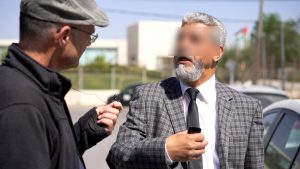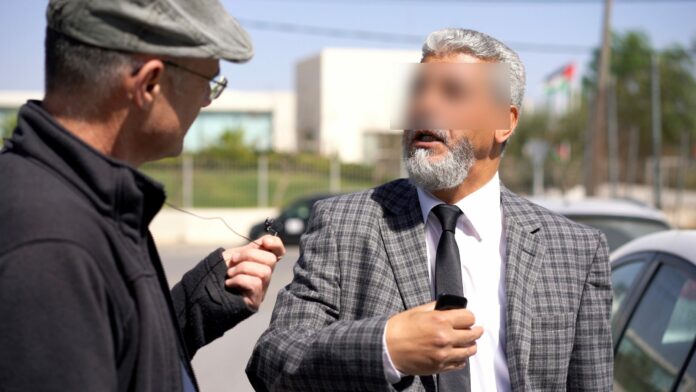First published on Stuff

OPINION: In 2018 I visited Ramallah with two colleagues. In an unanticipated conversation on a street very near Yasser Arafat’s tomb, a friendly and engaging Palestinian lawyer explained to us that their leaders were like gangs, they were corrupt and ‘monopolise the money’. He complained that they do not care about human rights but are only interested in blaming Israel. In this Palestinian’s view, Israel was not the problem – but rather the corrupt and self-serving Palestinian leadership.
It is not uncommon to view the Israel-Palestinian conflict as a power battle, with Israel as the dominant power and the Palestinians as the victims. However, this type of analysis ignores realities on the ground and twists historical facts to suit a political agenda.
A more useful exercise, which might bring real change for Palestinians, would be to consider the power relations within Palestinian society. Why have there been no elections in the Palestinian Territories since 2006? Why does Gaza’s Hamas devote untold resources to terrorism rather than building a state? Where do the millions of dollars of international aid go?
In a recent article (June 26) Donna Miles-Mojab claimed that the “clear vision behind the creation of Israel has always been to displace and replace the existing society”. This is simply untrue. There was no universally held view as to what a reconstituted Jewish homeland might look like. Most expected to live in peace with the Arab inhabitants of the land. Zionist humanitarian organisations pioneered health initiatives to foster the wellbeing of the inhabitants of Palestine. Indeed New Zealand’s women Zionists in the 1920s established Plunket-styled infant welfare centres in Palestine for both Jews and Arabs.
Jewish immigration was not always viewed negatively. The historian Colin Shindler noted:
“In the inter-war years, the industrialisation of Palestine and increased Jewish immigration under the British Mandate produced prosperity for both peoples. The Arab population in Palestine grew twice as swiftly as those of Syria and Lebanon. Tens of thousands of Arabs entered Palestine from surrounding countries, increasing the Arab population by over 8 per cent.”
Miles-Mojab seemed surprised by the deep impact of the Holocaust on Israeli consciousness. The systematic murder of six million of one’s people, with the complicity of whole societies across Europe, while other nations closed their borders to Jews seeking refuge, should, and does, contribute to Israel’s awareness of security needs. Especially when the same Arab nations that have continued to threaten Israel were allied with the Nazis.
Irrespective, with regard to Israel’s concern for security, there are pressing and very real present considerations.
When Ariel Sharon ordered the evacuation of 8000 Jewish residents in Gaza in 2005, the enclave was turned into a terrorist base by Hamas.
In March 2019, a review found that Palestinians had, in the 365 days prior, launched 1233 rockets from Gaza, hurled 94 explosive devices and 600 Molotov cocktails over the security fence. Arab Palestinian terrorists targeted Israeli civilians and committed 152 acts of arson against Israeli forces, as well as launching incendiary kites that set fire to thousands of acres of farmland. The terrorist attacks from Gaza continue to this day. In addition, Israel faces ongoing threats and acts of violence from Iran, Iranian proxies like Hezbollah and various terrorist groups in the West Bank.
Miles-Mojab’s claim of a ‘one-state reality imposed on Palestinians’ ignores the fact that in Israel, Jews and Arabs enjoy equal rights. In contrast, Jews are forbidden to enter the Palestinian Territories or buy land controlled by the Palestinian Authority or Hamas. Furthermore, the Palestinians have been offered a state on several occasions (1947, 2000, 2001, 2008) but refuse to compromise their maximalist demands.
Given these realities, the push for “complete equality in personal, religious, civil, political and national rights for both Israelis and Palestinians”, sounds very much like the One-State Solution advocated by many anti-Israel advocates. This, combined with the Palestinian insistence on a ‘right of return’, would mean an end to the world’s only Jewish state, at best, or genocide, at worst.
Until there’s a shift in mindset among Palestinian leaders, one that accepts Jewish presence in the region, there will be no peace.
Dr Sheree Trotter recently completed a PhD on Zionism in New Zealand at the University of Auckland.
The conversation referenced above can be viewed here and here.




[…] No peace until Jewish presence accepted […]
Comments are closed.